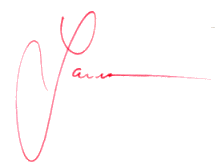


August 2026
Self Help

I was coming home from the grocery store, doing exactly what a person with on-and-off hand pain should not do, dangling four grocery bags from my wrists, including one with the 64-ounce calcium-spiked jug of Tropicana Orange Juice. So I admit I was a little impatient when I was stopped by a strange man. (Let me clarify -- by "strange," I mean a stranger, a person not known to me. Nothing more, nothing less.)
"X tells me," he said, mentioning one of my neighbors "that you're a writer."
With a sinking heart and already aching wrist, I confessed that I was. I knew the ensuing conversation was likely to be a long one.
"My wife writes poetry," he said. "And she's working on an autobiography, and I was wondering if you knew how she could get someone to publish her work."
"It's a good question," I said, "but the answer is fairly complicated and one I'm not really prepared to go into just now. The thing is, I don't write poetry, and I've never tried to write a memoir, and I don't know much about publishing either. My basic advice is that she needs to get an agent -- one that knows those fields. And to do that, she needs to treat her writing like a business, researching the field."
My answer did not satisfy. The man simply kept repeating the basic information, embroidering it here and there. He seemed to believe that his wife's creative nature was a handicap when it came to selling her work, that she was too gentle a soul to deal directly in the sordid subject of coin*. He seemed to suspect, as Stephen Fry wrote in his excellent New York Times essay on June 29th, that there was a secret to getting published that I had and he did not. And he wanted it, right then and there. Here was his wife, writing her heart out, and I wouldn't tell him the magic password. How stingy of me, how unfair.
I remember thinking, If only I could give him my web address and tell him he could find all my advice there.
Well, now I can.
First, my own disclaimer: I stole this idea from Jennifer Weiner's big picture essay on writers and writing. However, this is a narrower and more self-contained approach because I am clearly much lazier than this talented novelist, based on the full life her blog reflects. Heck, I'm so lazy that I don't even have a blog.
#1: Finish the damn book.
I know, that sounds a little harsh. It's meant to. And it's not even good across-the-board advice, as most nonfiction is sold on the basis of proposals. But, for first-time fiction writers, this advice is key: Finish the damn book. And don't tell me about so-and-so, who got $1 million for scribbling an idea on a piece of paper, or such-and-such, whose first novel was sold to Hollywood while in galleys. The reason you've read these stories in the press is because they meet the definition of news. They rarely happen.
I cannot say this often enough: Finish the damn book. Go away, do it now. In fact, don't even keep reading this list until you have.
#2: Do your homework. Spend a day at a library or well-stocked bookstore. Surf the Internet. Find books that are similar in genre, story and/or tone with your (now-finished) book. Check to see if the writer mentions the agent in the acknowledgement section. If so, this acknowledgment functions as a pretty good reference, don't you think? Do you thank people who did a crummy job? Conversely, if an agent who has been warmly thanked in earlier volumes suddenly goes missing, you might want to think about the implications of that as well.
Now, take your list of names to a reference known as the Literary Marketplace. (The online version is less comprehensive than the one between covers.) Look up the agents. Check to see if they're taking queries. Write a one-page letter to the agent, by name -- NOT to "Dear Agent" -- that explains you are writing the agent specifically because the agent represents a similar writer and/or book.
Opinions are divided if you should include a sample chapter in such a letter. I would, but I have heard some agents proclaim at conferences that they would never read an unsolicited piece of writing, no matter how short. Do not send your entire manuscript. Wait to be invited. Then send it with an SASE. If you don't know what an SASE is, you haven't done enough homework.
Another good way to find an agent names is to read John F. Baker's "Hot Deals" column in Publishers Weekly. There are also several websites, such as Mobylives.com and Publishers Lunch, which contain links to book-related news.
#3: No matter how many times you come up empty after following the first two steps, don't give up. Finding the right agent is as hard as finding the right spouse. You are looking for the person who loves your work because it takes that kind of passion to steer a book, and a writer, through this prickly and demanding marketplace. And bear in mind - there's writing and there's publishing, and you'd be surprised how little the two activities overlap. Some people are happy to write without publishing. Or so I hear. I've yet to meet one.
Sadly, this is my sum total of knowledge on how to get published. And it's not even mine. I stole most of it from the level-headed Sujata Massey. It took me more than a year to find an agent, she did it in six weeks, so it was a no-brainer to appropriate her road-tested advice.
*A favorite line from a pretty bad movie. E-mail me if you know it.

Read Mistakes Were Made.
Read Play With Yourself.
Read Musings and Advice.
Read We Were Haranders.
Read Spying on Harriet.
Read Gone Baby Gone.
Read The Last Good Saturday Night.
Read In a Strange Kitchen.
Read The "D" Word.
